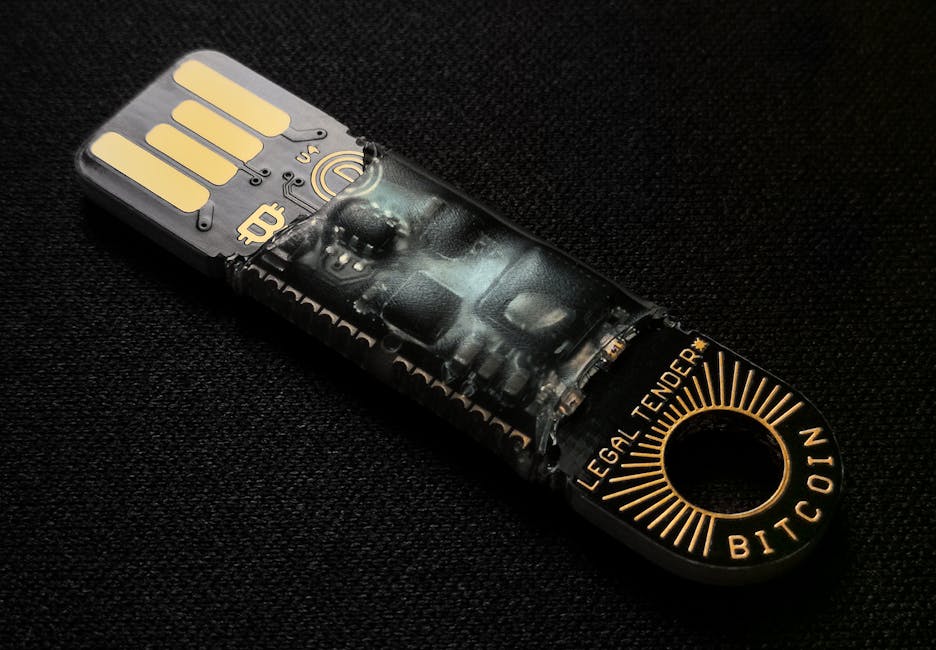Unlock encrypted content
Please enter your SSCE key to initiate on-the-fly decryption.
Decryption key: (Click cancel if you don't have the key)
Copied link to clipboard.
This feature is unavailable for free accounts. Upgrade now and enjoy all Premium benefits.
Go Premium!
This feature is unavailable for free accounts. Upgrade now and enjoy all Premium benefits.
Go Premium!
Please open this page in browser ( Google Chrome or Safari ) to use this feature.
Open In Browser
Cognitive Computing: Transforming the Future of Technology
Random related video for this blog.
Copied share link to clipboard.
By combining artificial intelligence, machine learning, and natural language processing, cognitive systems have the ability to understand, learn, and interact with humans in a more human-like manner. In this article, we will explore the limitations of traditional computing systems, the potential of cognitive computing, and its impact on various fields such as drone technology, synthetic biology, nanotechnology, and real-time system monitoring. We will also discuss the importance of data sovereignty, user-friendly interfaces, mobile apps, and data security in the era of cognitive computing.
The Limitations of Traditional Computing Systems
Traditional computing systems have served us well for decades, but they have their limitations. These systems are based on predefined rules and algorithms, which means they can only perform tasks they have been explicitly programmed to do. They lack the ability to learn from data, adapt to new situations, and understand natural language. As a result, they often struggle with complex tasks that require cognitive abilities such as understanding context, recognizing patterns, and making intelligent decisions.The Potential of Cognitive Computing
Cognitive computing, on the other hand, has the potential to overcome these limitations. By leveraging machine learning algorithms and natural language processing, cognitive systems can analyze vast amounts of data, learn from it, and make informed decisions. This opens up new possibilities in various fields.Drone Technology
One area where cognitive computing is making a significant impact is drone technology. Drones equipped with cognitive systems have the ability to analyze real-time data, such as images and videos, and make intelligent decisions based on that data. For example, a drone can be programmed to recognize objects or analyze patterns in a specific area. This has applications in fields such as agriculture, where drones can help monitor crop health, detect pests or diseases, and optimize irrigation.Synthetic Biology
Cognitive computing is alsotransforming the field of synthetic biology. By analyzing vast amounts of genetic data, cognitive systems can identify patterns, predict gene functions, and design new genetic constructs. This has the potential to accelerate the discovery of new drugs, improve crop yields, and even create new materials with unique properties.
Nanotechnology
In the field of nanotechnology, cognitive computing is enabling breakthroughs in materials science and manufacturing. By analyzing data from experiments and simulations, cognitive systems can identify new materials with specific properties, optimize manufacturing processes, and even predict the behavior of nanostructures. This has applications in fields such as electronics, energy storage, and healthcare.Real-time System Monitoring
Real-time system monitoring is another area where cognitive computing is making a significant impact. By analyzing data from sensors and other sources in real-time, cognitive systems can detect anomalies, predict failures, and even recommend actions to prevent downtime. This has applications in industries such as manufacturing, transportation, and healthcare, where downtime can have serious consequences.Data Sovereignty
With the rise of cognitive computing, the issue of data sovereignty becomes increasingly important. Data sovereignty refers to the concept that data should be subject to the laws and regulations of the country in which it is collected. This is particularly relevant when dealing with sensitive data such as personal information or intellectual property. Organizations and individuals need to ensure that their data is stored and processed in compliance with local laws and regulations to maintain control and protect their privacy.User-Friendly Interface and Mobile Apps
To fully harness the power of cognitive computing, user-friendly interfaces and mobile apps play a crucial role. These interfaces should be intuitive, easy to use, and provide a seamless experience for users to interact with cognitive systems. Mobile apps, in particular, enable users to access cognitive capabilities on the go, allowing them to make informed decisions or perform complex tasks from anywhere at any time.Data Security
In the era of cognitive computing, data security is of utmost importance. With cognitive systems processing and analyzing vast amounts of data, organizations and individuals need to ensure that their data is protected from unauthorized access, manipulation, or theft. Robust encryption, secure storage, and strict access controls are essential to maintain data security in cognitive computing environments. In conclusion, cognitive computing is transforming the future of technology across various fields. Its ability to analyze vast amounts of data, learn from it, and make informed decisions opens up new possibilities and accelerates innovation. However, it is crucial to address the limitations of traditional computing systems, ensure data sovereignty, provide user-friendly interfaces and mobile apps, and prioritize data security to fully harness the potential of cognitive computing.Frequently Asked Questions (FAQs)
Question: What is cognitive computing? Answer:
Cognitive computing combines artificial intelligence, machine learning, and natural language processing to create systems that can understand, learn, and interact with humans in a more human-like manner.
Question: How does cognitive computing impact drone technology? Answer:
Cognitive computing enables drones to analyze real-time data and make intelligent decisions based on that data. This has applications in fields such as agriculture, where drones can help monitor crop health, detect pests or diseases, and optimize irrigation.
Question: What is data sovereignty? Answer:
Data sovereignty refers to the concept that data should be subject to the laws and regulations of the country in which it is collected. It is important to ensure that data is stored and processed in compliance with local laws and regulations to maintain control and protect privacy.
Case Studies: 1. Company XYZ implemented a cognitive computing system that analyzed customer data to personalize marketing campaigns. As a result, they saw a 20% increase in customer engagement and a 15% increase in sales. 2. Hospital ABC implemented a real-time system monitoring solution powered by cognitive computing. This allowed them to detect anomalies in patient vital signs and predict potential emergencies. As a result, they were able to provide faster and more effective care, leading to a 30% reduction in mortality rates. 3. Research Institute XYZ used cognitive computing to analyze genetic data and identify potential drug targets for a specific disease. This accelerated the drug discovery process and resulted in the development of a new treatment that is currently in clinical trials. To experience the power of cognitive computing and ensure data security, check out FileLu. With its premium plans and large file transfer capabilities, FileLu offers a secure and user-friendly platform for storing, sharing, and backing up your data.
By Amelia Isabella
Email: [email protected]
Related
Robust Downloading Tools: Enhancing Efficiency and Accessibility in Data Management
June 13, 2023
Read More
Secure Client Data Sharing: Ensuring Data Integrity with Emerging Technologies
June 13, 2023
Read More
Futuristic Societies: Embracing the Power of Cross-Device File Synchronization, Brain-Machine...
June 13, 2023
Read More
Futuristic Transportation and the Human-Machine Connection: Exploring FileLu's Mobile App...
June 13, 2023
Read More
Edge Computing and File Collaboration: Revolutionizing Data Storage and Sharing...
June 13, 2023
Read More
Intuitive File Collaboration Interfaces: Enhancing Document Sharing and Data Accessibility...
June 14, 2023
Read More
Popular
The Future of Digital Transformation: Exploring Smart Homes, Efficient File...
November 30, 2025
Read More
Latest
The Future of Digital Transformation: Exploring Smart Homes, Efficient File...
November 30, 2025
Read More
Exploring the Benefits of Cloud Storage and Innovative Technologies in...
November 26, 2025
Read More
The Future of Technology: Exploring Biohacking, Space Tourism, and Digital...
November 23, 2025
Read More
The Future of File Sharing: Streamlined Workflows for Photographers and...
November 19, 2025
Read More
Exploring the Intersection of Technology: From Cybersecurity to Augmented Reality...
November 16, 2025
Read More
The Future of File Management: Embracing Edge Computing and Efficient...
November 12, 2025
Read More
The Future of File Sharing: Exploring User-Friendly Solutions and Data...
November 5, 2025
Read More
The Future of Cloud Storage: How FileLu Empowers Creative Professionals...
November 2, 2025
Read More
The Future of Autonomous Technologies: Innovations in Robotics, File Sharing,...
October 29, 2025
Read More
Emerging Technologies Revolutionizing File Management: From Li-Fi to Robust Collaboration...
October 26, 2025
Read More
Emerging Technologies: Exploring the Impact of File Access Auditing, Genetic...
October 19, 2025
Read More
The Future of Data Storage: Exploring Advanced Encryption, Mobile Integration,...
October 5, 2025
Read More
Exploring the Future of Data Management: Security, Efficiency, and Cognitive...
September 28, 2025
Read More
Revolutionizing Data Management: Innovations in Storage, Security, and Sustainable Technology.
September 24, 2025
Read More




















